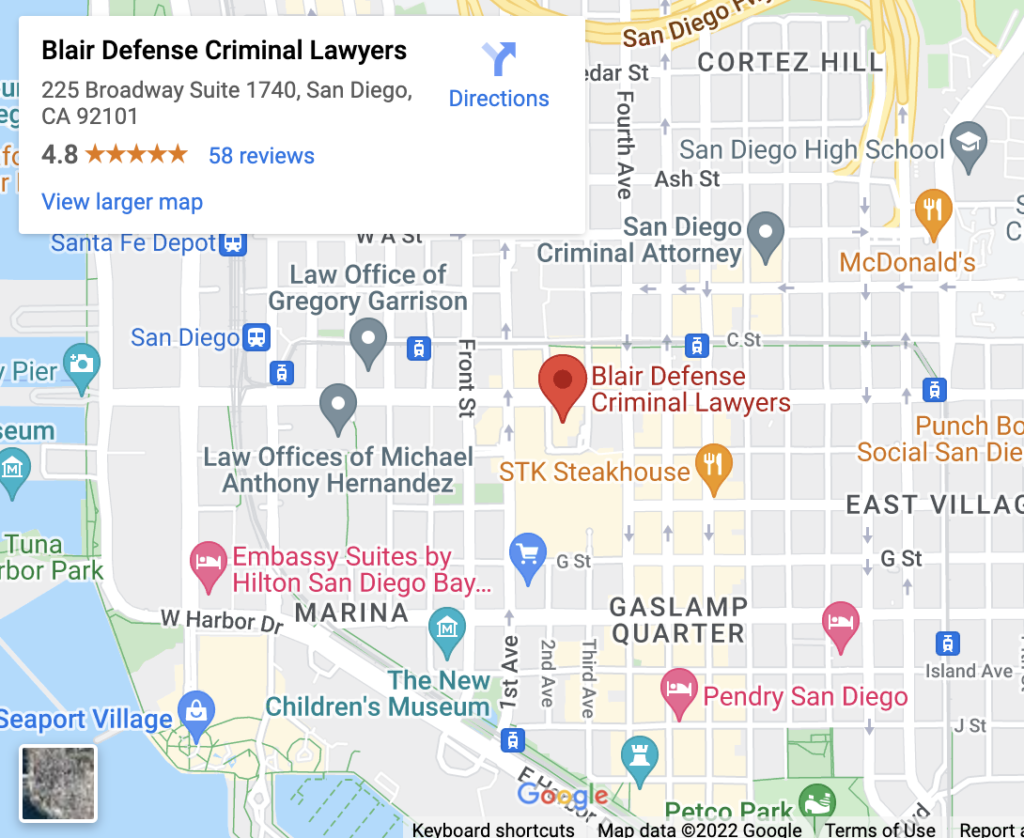
If you have a criminal record, you already know how hard it can make your life. Prior criminal history makes it difficult to get jobs, find housing, and access government loans. There is a stigma that follows people with criminal records. We like to believe that once you serve your time, the past is in the past. Unfortunately, that’s not the case.
If you get in trouble again, your criminal history could affect your current case. It can impact everything from your charges to your trial – and even your punishment.
If you’ve been charged with a crime in San Diego, CA and have a criminal record, you should talk with a lawyer. They can advise you on how to minimize the impact of your criminal history and get the best outcome possible.
Table of Contents
Types of Criminal Offenses in California
California law classifies crimes into four different categories. Each type of crime carries a different penalty and effect on your record. No matter what type of crime you face, you can hire a criminal defense lawyer to defend you. You should always consider hiring an attorney because you are more likely to win your case.
Felonies
Felonies are the most serious crimes in California. These offenses are punishable by death or prison time.
Examples of potential felonies include:
Most people convicted of a felony will also get felony probation as a condition of their release. This means regularly reporting to a probation officer and following certain rules, like taking drug tests or having a curfew. They may also be fined and ordered to pay restitution to victims.
Misdemeanors
Misdemeanors are less serious than felonies. These crimes are punishable by up to one year in jail and a minimum $1,000 fine. Misdemeanors are usually non-violent crimes and have less impact on your day-to-day life than a felony.
Wobblers
In California, prosecutors have the discretion to charge certain crimes as either a misdemeanor or a felony. These are called “wobblers.” How they charge these crimes can affect your punishment and the outcome of the case.
Infractions
Infractions are offenses that don’t carry any jail time. Usually, they are punishable by a small fine. Infractions are written on tickets, and you may need to go to court. You still have the option to hire a lawyer to defend you against an infraction, but you don’t necessarily need one.
Your Criminal History May Influence Your Current Charges
The police may arrest you, but prosecutors decide what crime to charge.
If a prosecutor knows that you have a criminal history, they may decide to charge you with a more serious offense as punishment. This is especially true if you were arrested for a wobbler offense. Instead of giving you the benefit of the doubt and charging a misdemeanor, they may charge a felony because they see you as a threat to society.
Some crimes become more severe if they are repeat offenses. For example, if you have one or more prior DUI convictions, you will likely face steeper penalties, including more time in jail. The same is true for certain domestic violence charges.
Criminal Record As Evidence in Trial
In general, the prosecutor cannot bring up your prior criminal record in front of a jury. That’s because the California Evidence Code prohibits lawyers from admitting character evidence. Character evidence is when a lawyer argues that because someone did something bad in the past, they are more likely to have committed the crime in this case.
Sometimes criminal convictions can be admitted during trial, despite the character evidence rule. For example, if you have a crime of dishonesty on your record, like perjury or theft, the prosecutor can ask you about it if you testify. That’s because the conviction is being offered to prove that you have a history of dishonesty, not a general bad character.
Even though the prosecutor may not be able to tell the jury about your prior record, the judge will know about it during sentencing. As a result, they may consider your criminal history when deciding what sentence is appropriate. You might get a harsher sentence because of your criminal record.
California’s Three Strikes Law
If you have a serious or violent felony conviction on your record, you will serve more time if you are convicted in your current felony case.
Under California’s three-strikes law, your prison sentence is doubled if:
- You are convicted of any felony; and
- You already have a violent felony or serious felony conviction on your record.
That means if you receive five years in prison for your conviction, the judge must double it and give you ten years.
If you have two violent or serious felony convictions on your record and you are convicted of a third violent or serious felony, your prison sentence is a mandatory 25 years to life. This rule is particularly harsh because it takes away a judge’s discretion. They cannot consider mitigating circumstances that may warrant a lesser punishment.
Violent And Serious Felonies
Not every felony conviction triggers the three-strike enhancement. It must be a serious or violent felony as defined under California law. The California Penal Code specifically lists violent felonies.
They include:
- Murder
- Mayhem
- Rape
- Sodomy
- Oral copulation
- Lewd or lascivious acts
- A felony punishable by death or life in prison
- A felony where the defendant inflicts great bodily injury on a person
- Robbery
- Arson
- Felonious sexual penetration
- Attempted murder
- Kidnapping
- Assault with intent to commit certain felonies
- Continuous sexual abuse of a child
- Extortion
- Certain felony threats to victims or witnesses
The list of serious felonies is much longer and includes attempted violent felonies and many different forms of assault, carjacking, and weapons offenses. While it isn’t every felony, many do qualify.
Out-of-State Convictions
If you have a criminal record from another state, you can still be punished under the three-strikes law. If your prior felony has all of the same elements as a serious felony or a violent felony in California, it can qualify as a strike.
Sometimes states define the same crime differently. If that’s the case, your lawyer can argue that the conviction should not qualify as a strike in California.
Talk To a San Diego Criminal Defense Attorney If You’ve Been Charged With a Crime and Have a Record
If you’re being charged with a crime in San Diego, CA, contact Blair Defense Criminal Lawyers for a free case review. We’ll explain how your prior criminal record might impact your case and implement a strategy to defend you.

